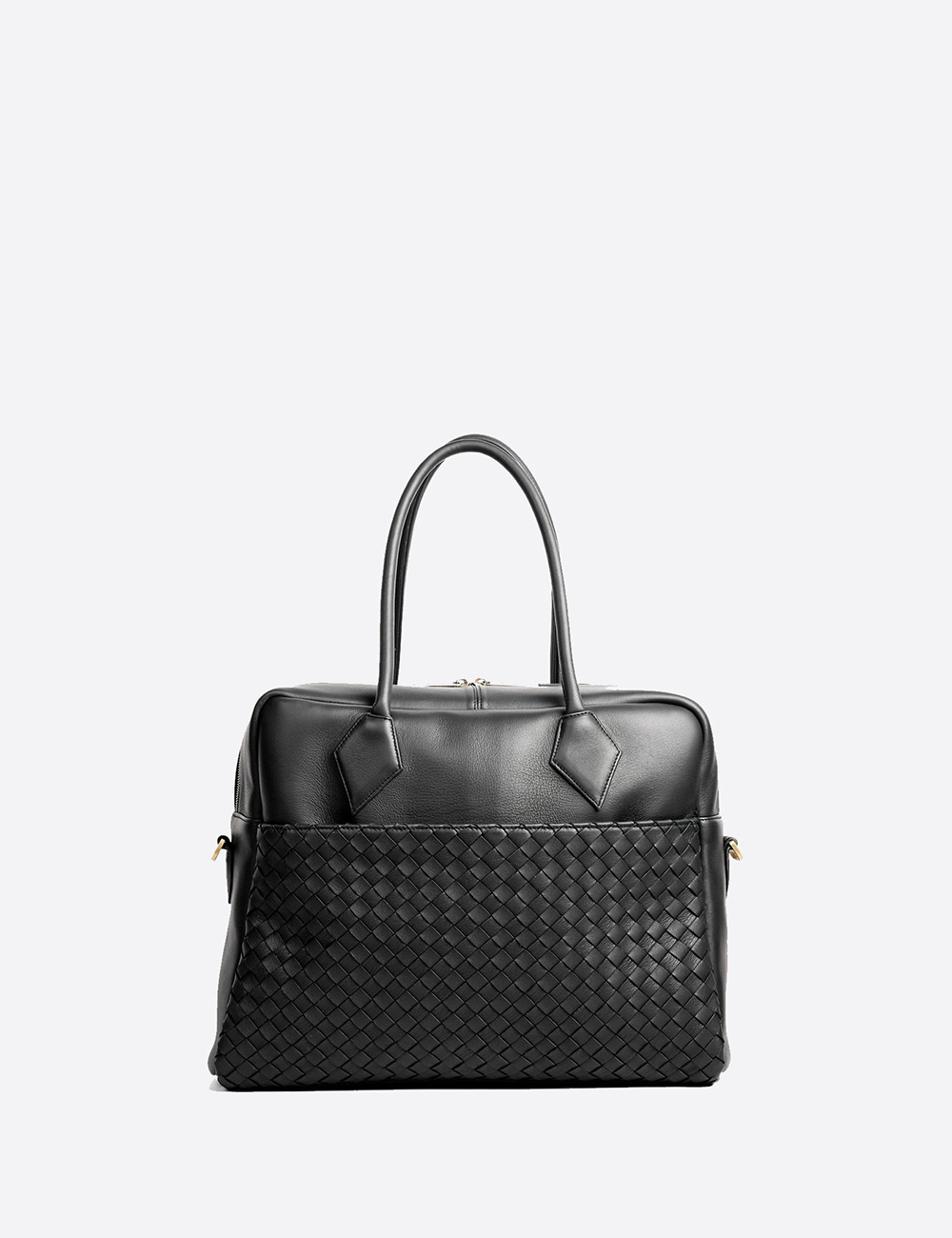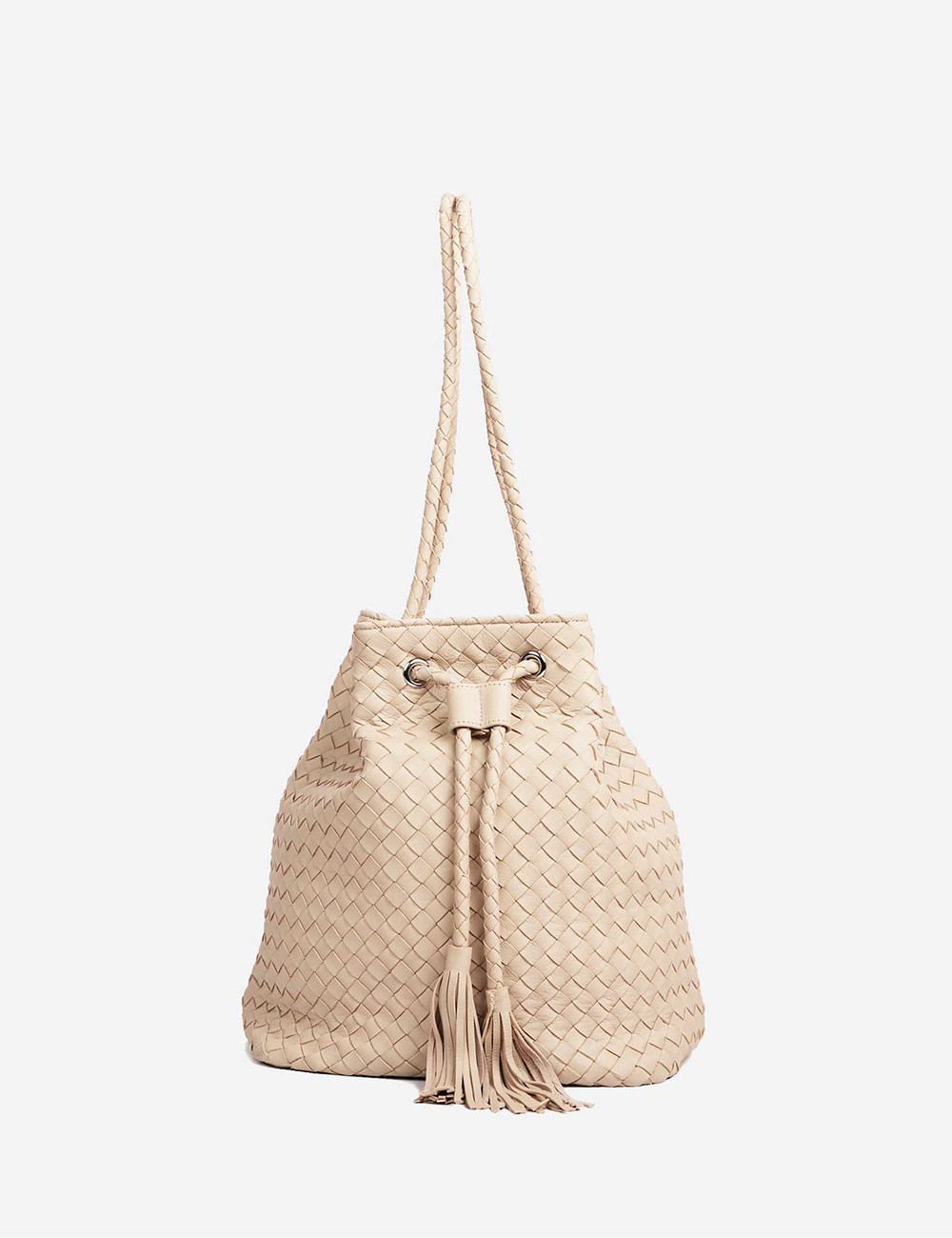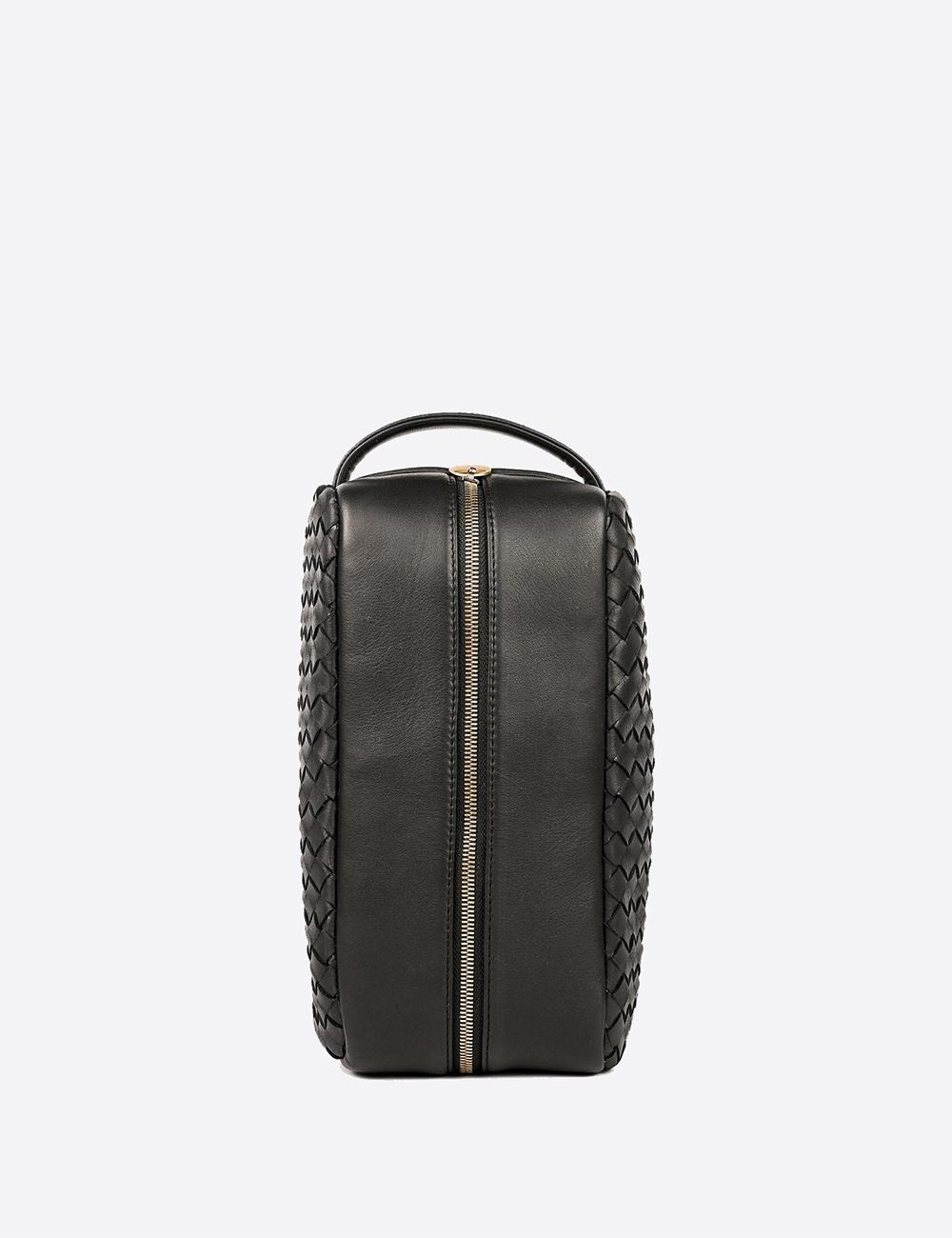FEATURES • BRANDS
An Authentic Expression of Refined Ancestral Craftmanship and Timeless Design
Is Locavore NXT
the Future of Sustainable Dining?
From the skilfully hand-woven Intrecciato patterns to the beautiful finishing of each piece, Kmana is an authentic expression of refined ancestral craftmanship and timeless design. A passion for travel and cross-cultural design unites the founders of Kmana, a Mediterranean couple living in Southeast Asia for the past 10 years.
"With sustainability and integrity at the very heart of their creative and purpose driven studio, the bags and accessories they make are entirely handcrafted from vegetable tanned calf leather and certified sheep leather by a network of leather artisans, silversmiths and women weavers with whom Kmana works in partnership. Kmana - the Bahasa expression for ‘where are you going?’ - honours the boldness of the wanderers, makers and shakers and of all those who believe as the founders of Kmana do, that we are constantly creating the world we live in. It all comes down to the decisions we make. In May 2023, Kmana became a BCorp certified business."
May 2024 • Words & Photography by The Punch
"From cutting to sewing and hammering rivets, our bags
and accessories are entirely
hand-made and all the materials locally sourced."
Kmana
SUSTAINABILITY MANAGEMENT
"Since May 2023 we are a B Corp and we’re counted among businesses that are leading a global movement for an inclusive, equitable, and regenerative economy. For us, sustainability is a journey, which starts with a commitment to integrity. The more we know, the more we do, being very honest about what we can and cannot achieve, as there are trade-offs to consider."
MADE TO LAST
"Each Kmana bag is unique and made to last decades if not a lifetime. Quoting Vivienne Westwood, we believe in buying less and buying better. This is why we propose simple, timeless, gender-neutral designs, which do not depend on ephemeral trends. Guided by the motto “less is more”, we embrace clean and subtle detailing."
LOCALLY SOURCED & PARTNERSHIP BASED
"From cutting to sewing and hammering rivets, our bags and accessories are entirely hand-made and all the materials locally sourced. We work with small workshops and cooperatives of artisans, weavers and creatives, and respect their ways of working, their pricing systems and their deadlines. We don’t want to vertically integrate them as laborers; we want to work with them as partners. The artisans and weavers who work with us also receive due visibility, so that they do not remain faceless. We also provide them with training and help them improve their systems (i.e. with equipment) so that they can have better access to other brands and the market."
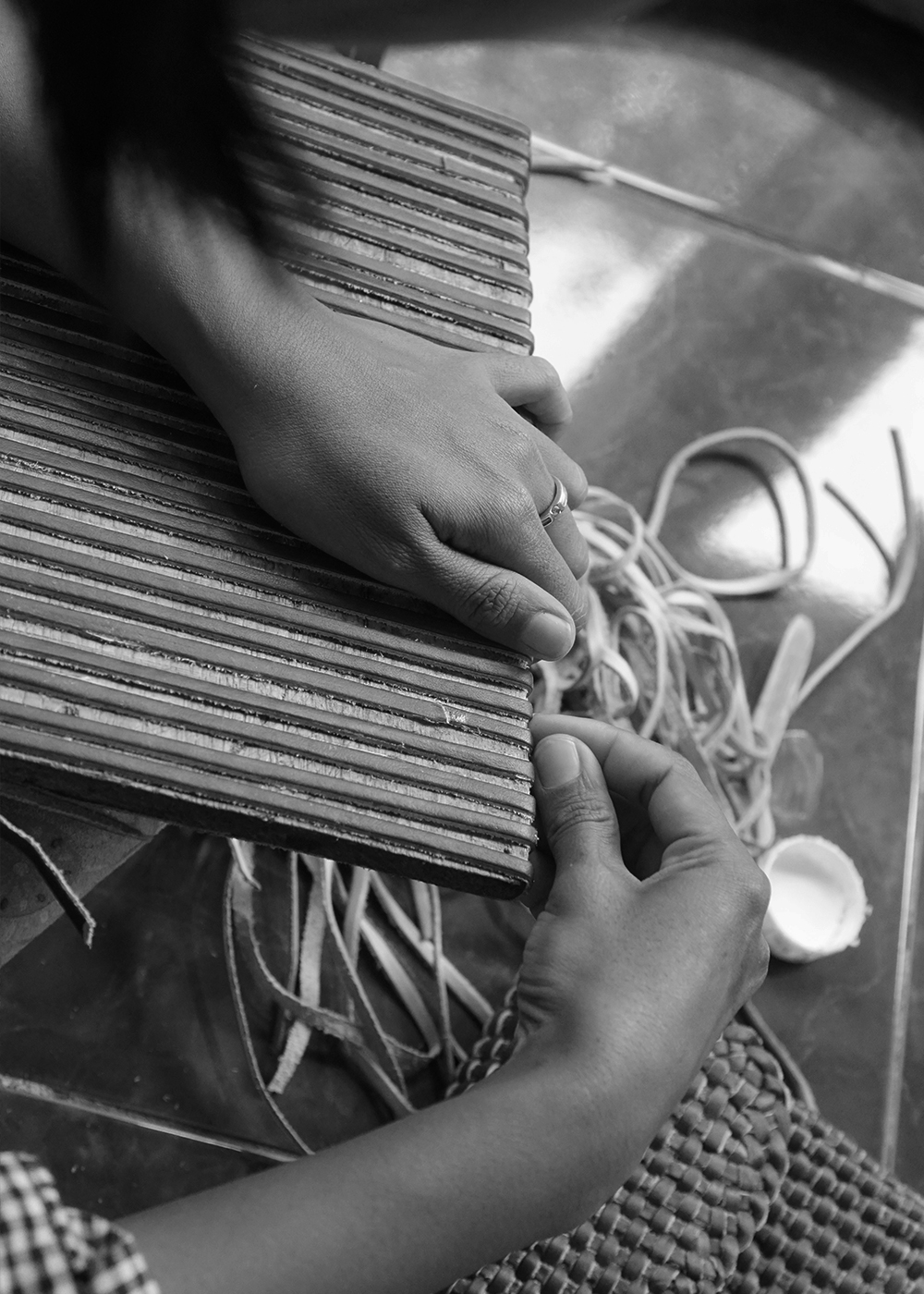
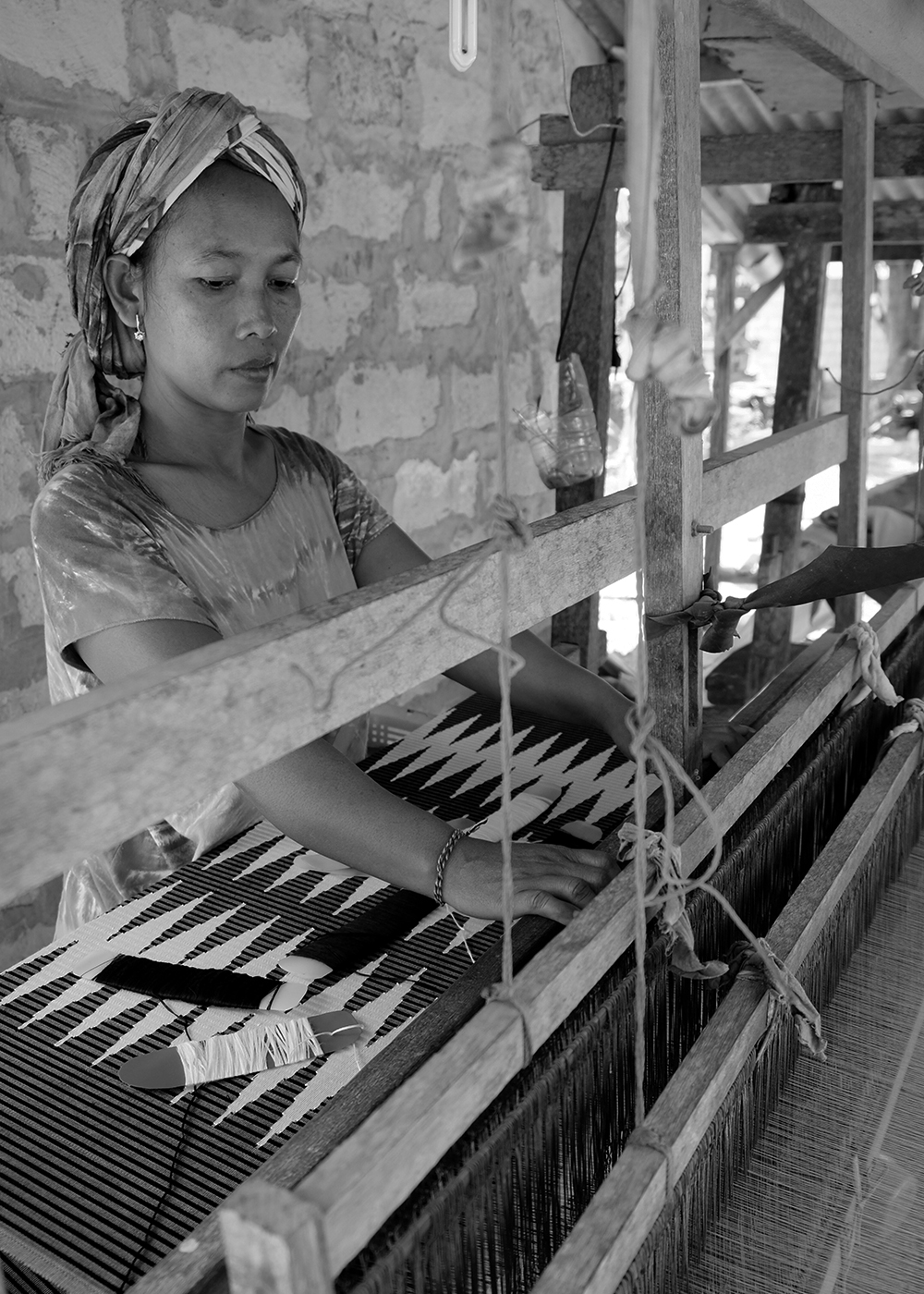
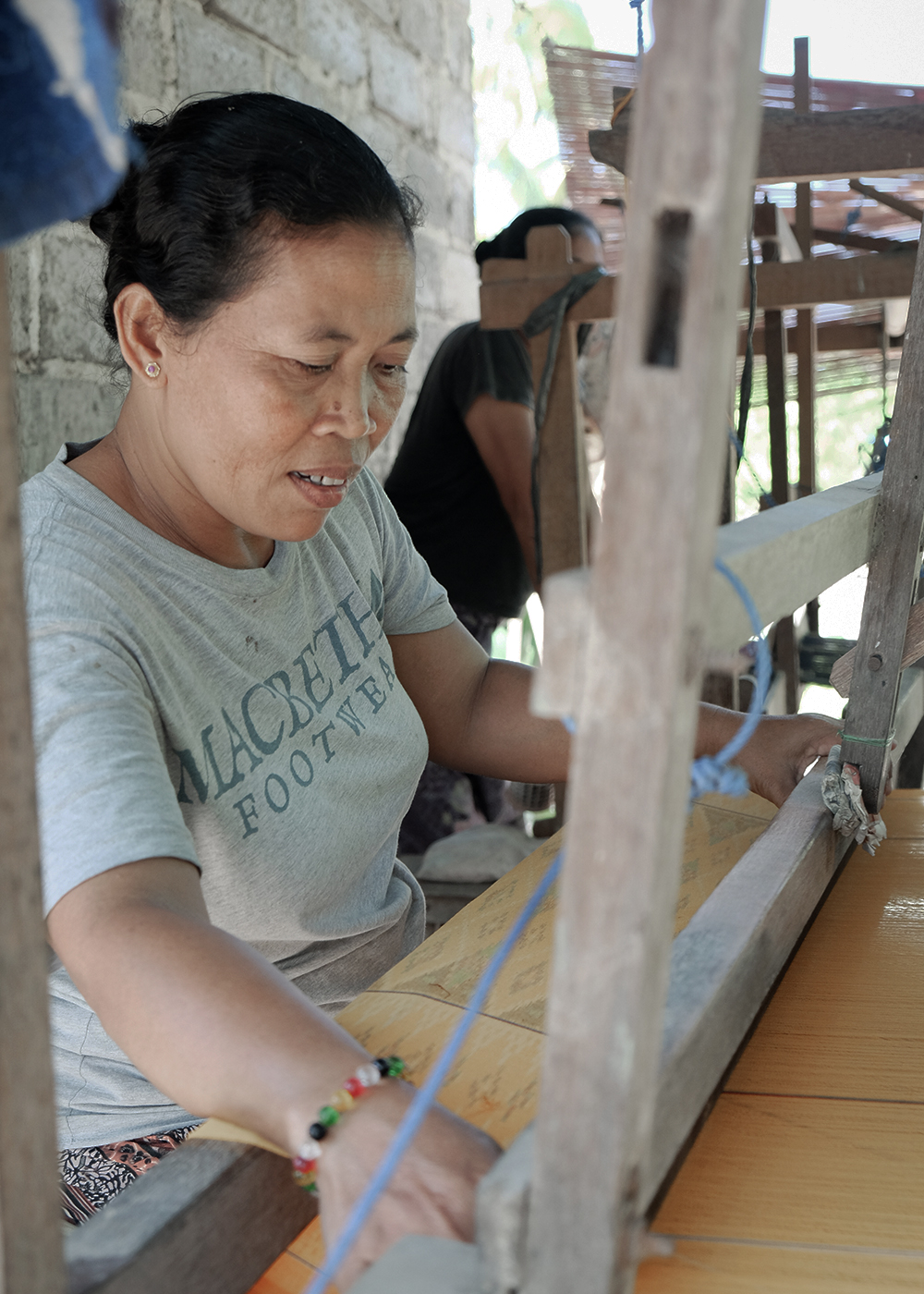
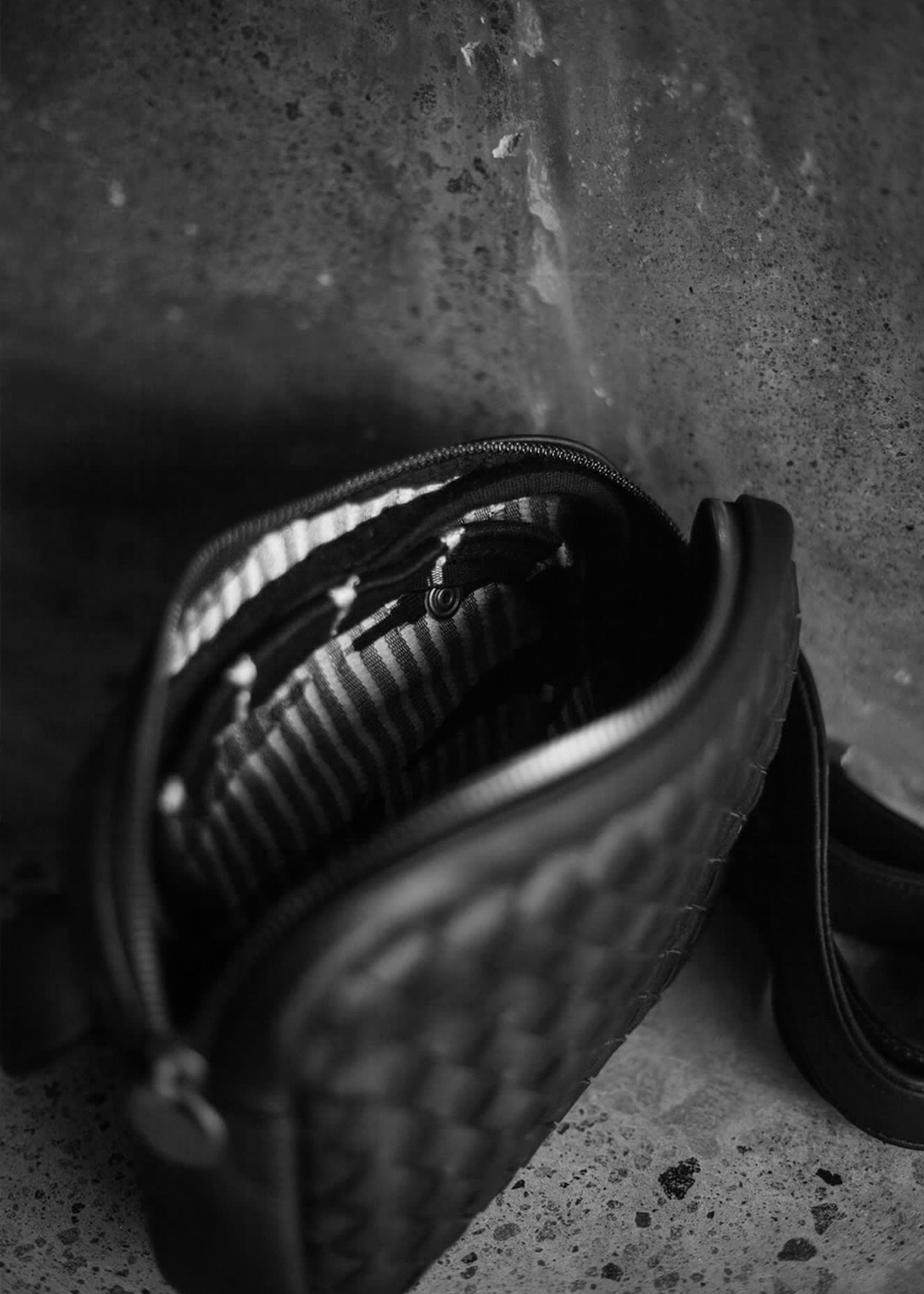
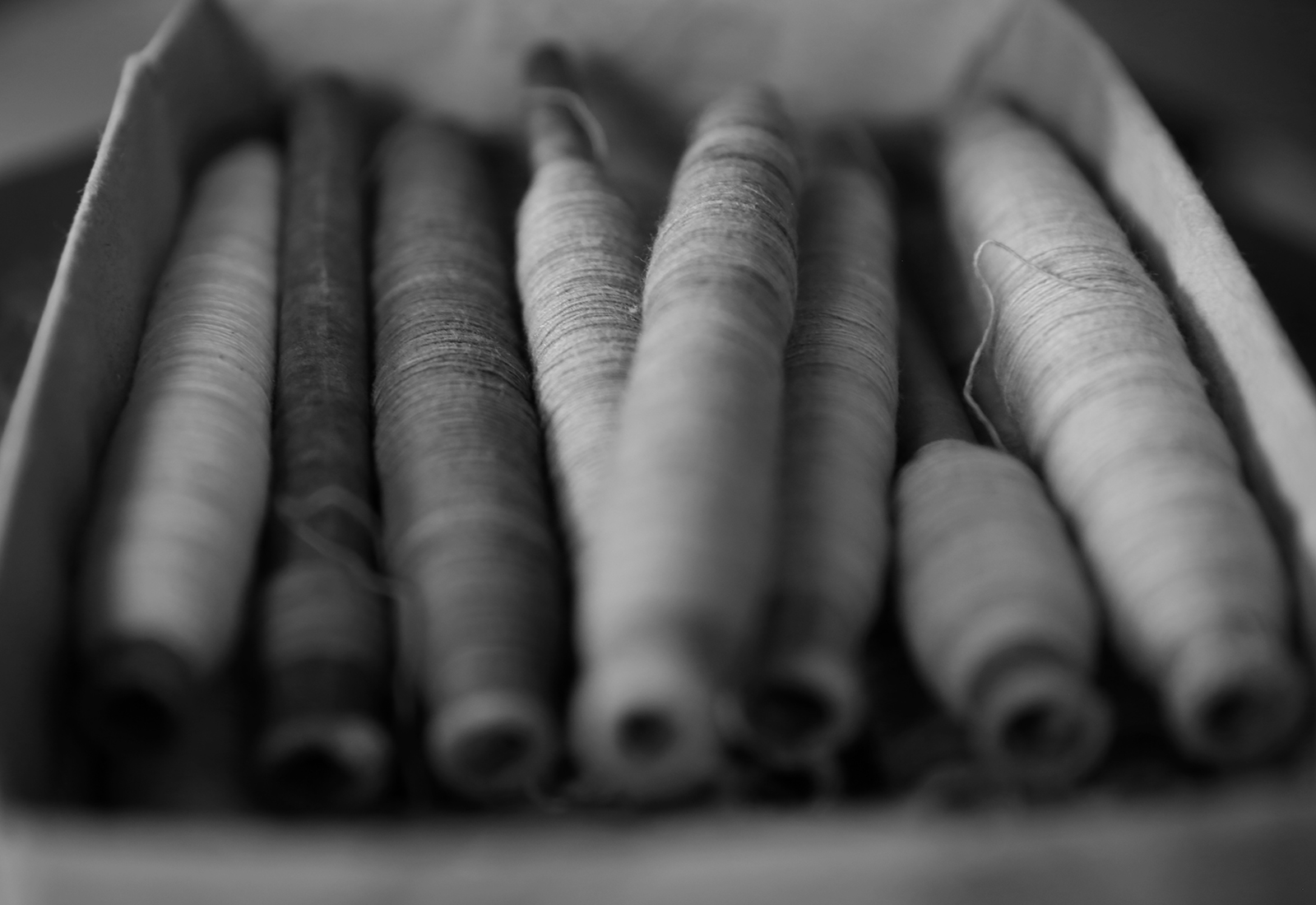
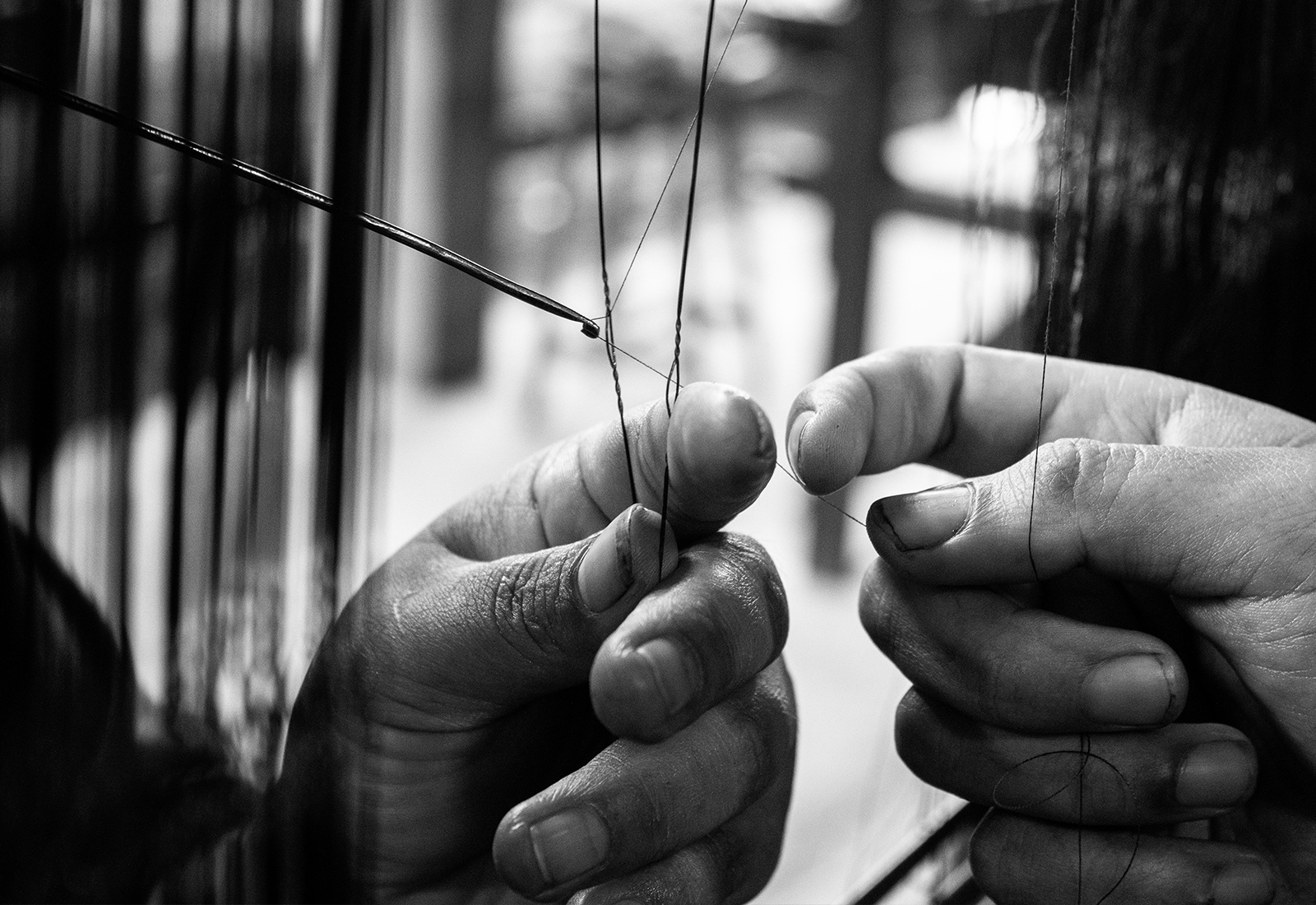
EQUALITY & TRANSPARENCY AT THE CENTRE
"All the workshops and cooperatives we work with have been visited and verified by us or by The Bali Curator, an organization we partner with in an effort to verify the working conditions of the artisans and their staff, the origin of the leather and the social and environmental impact of the tanning process."
MINDFUL TO THE EARTH AND PEOPLE
"We use up-cycled vegetable tanned calf leather from verified family-run tanneries in Java, with whom we have partnered, minimizing the chemicals used in the tanning process. The tannins used in our bags and accessories are found in the local tree barks and leaves. The hides are a by-product of the food industry in Java and are sourced from small farmers and resource-poor households, who raise cattle (i.e. usually 2 to 3 cows per family) in backyard sheds and small enclosures, largely for cash income.
When it comes to sheep leather (which cannot be vegetable tanned due to its thinness), we use certified up-cycled sheep leather (i.e., by the Leather Working Group). It is also a by-product of the food industry, and it is sourced from one of the oldest tanneries in Java, worldwide known for the quality of its leather and for the technology and systems in place to treat the water, manage and dispose waste and provide for the community."
CIRCULAR APPROACH & ZERO-WASTE TARGETS
"As mentioned, all the leather we use is up-cycled and is a by-product of the food industry in East Java (i.e. no animals are killed for their skin) . The hides would otherwise be discarded as waste. We also use all the surplus from the cutting of the hides to make small accessories and hand-woven bags. We also keep our stock to a minimum, prioritizing small batch production. We are now exploring how to close the loop and move towards a circular model by collecting and recycling old leather bags."
MINDFUL PACKAGING & CARBON-PRINT OFFSETING
"We use organic bamboo, recycled cardboard, and compostable bags (from No Issue) for our packaging. We have also partnered with GreensPark to offset our carbon footprint, plant trees and contribute to collect plastic waste."
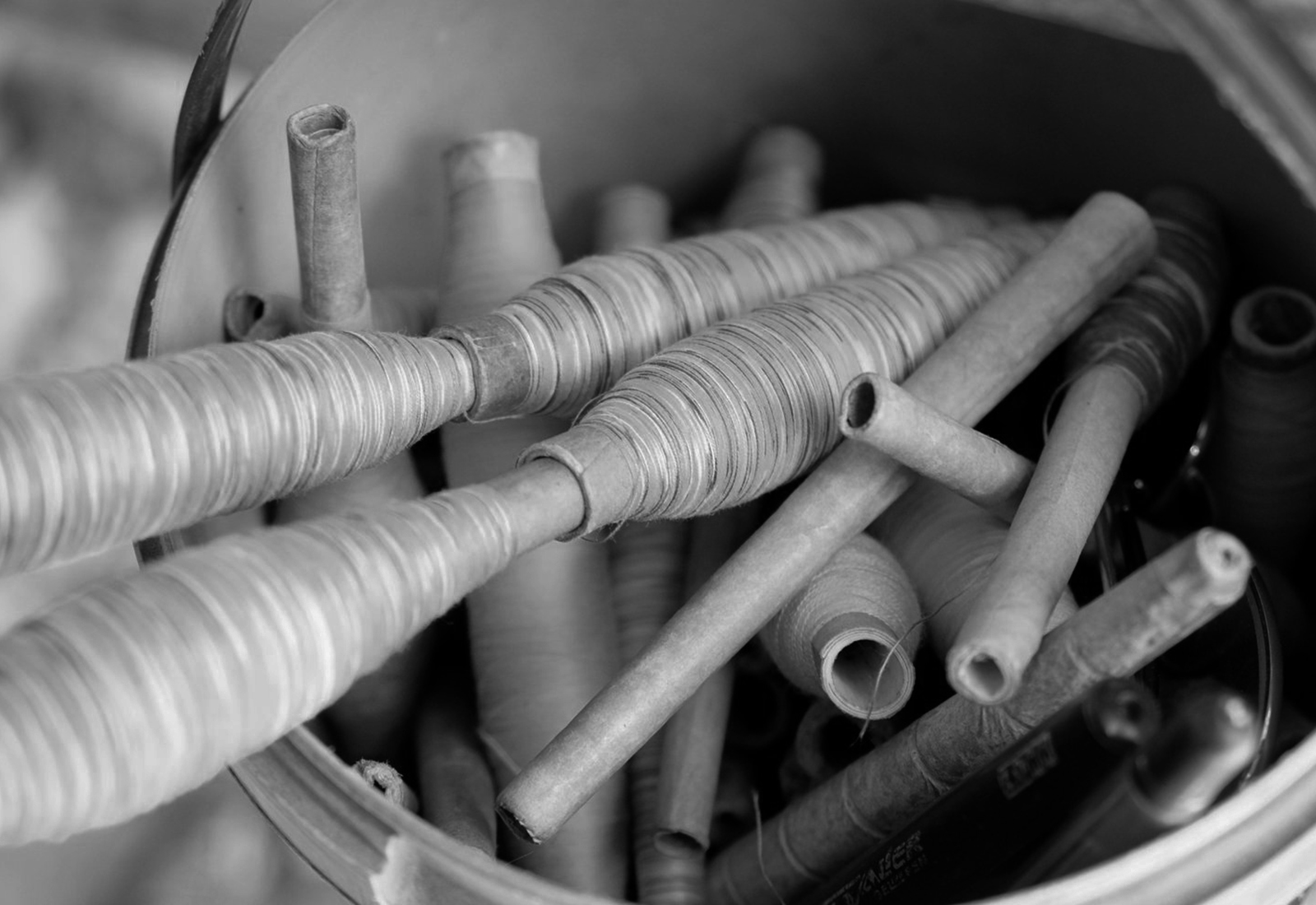
"We created Kmana
to become a bridge between Southeast Asian craftsmanship traditions and the contemporary scene of design and fashion"
Kmana
CULTURE PRESERVATION
"Strongly committed to the preservation of traditional culture and identity, we incorporate ancestral fabrics (e.g. hand woven Rang Rang) into every design in an effort to help our women cooperatives partners from Nusa Penida island and Singaraja preserve ancient weaving and natural dying techniques and skills passed down from generation to generation. We also assist our weavers gain access to international markets (e.g. Tenun Fashion week)."
BRIDGING TRADITIONS & MODERNITY
"We created Kmana to become a bridge between Southeast Asian craftsmanship traditions and the contemporary scene of design and fashion. We felt there was a missing link. We also felt there was narrative which needed to be changed about the crafts in this part of the world, which are often undervalued. Our designs and their stories aim to contribute to start changing such perceptions and to elevate the artisanal artistry of handmade accessories to new summits, gaining recognition for their craft in the international marketplace."
RADICAL TRANSPARENCY
"We also believe in responsible profits and are committed to full transparency on our prices by offering a detailed breakdown."

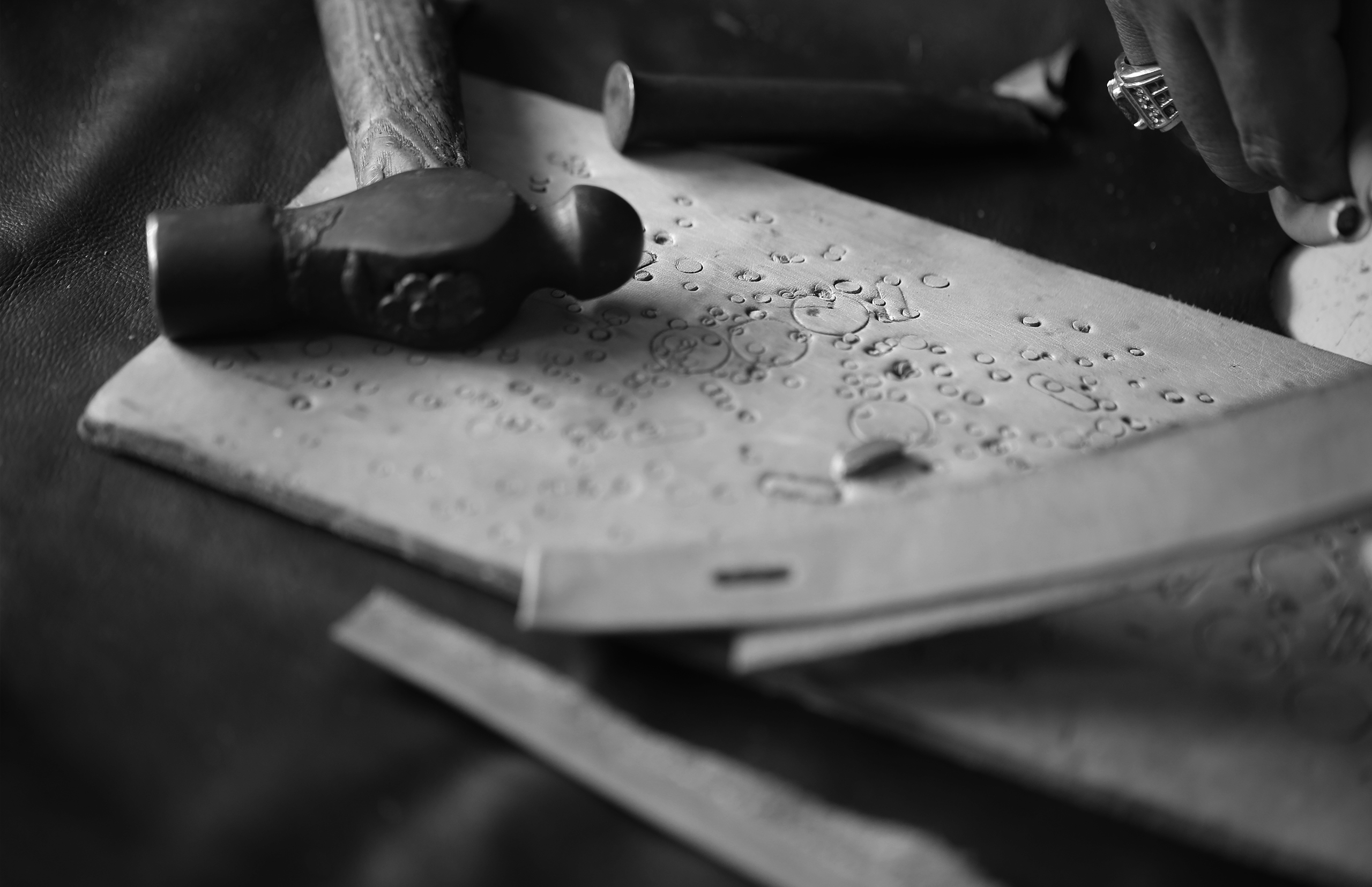
GIVING BACK
"We also acknowledge our own privilege, and this awareness informs our determination to give back to the community. 20% of our net profit is invested back in the community. So far:
In 2021, thank you to the amazing support from Angels for Impact and the ASEAN Foundation, we secured a 6000 USD grant to support Nusa Penida women weavers and the Bali Life Foundation women workshop to strengthen their skills and production capacities.
Since 2019, we have been supporting Pak Eko and his team in Jogjakarta in the production of 100% vegetable tanned leather, using local roots, barks and leaves. We are now exploring how to obtain the due certificates.
We pay a monthly contribution to GreensPark to offset our carbon footprint and support climate change projects. Since the outbreak of COVID, we have supported the most vulnerable groups in our Bali community, distributing reusable masks (produced by the women workshop of the Bali Life Foundation) and with in-kind food donations.
We support the work of the Bali Life Foundation (http://www.balilife.org/) to provide training and work opportunities for women living in the streets and are developing together a home-ware collection, also providing due training to the women with our lead artisans.
We support the efforts of the Role Foundation (http://rolefoundation.org/) in Bali to promote women empowerment and occupation, particularly of middle-aged women who lost their job as seaweed collectors and are now learning weaving skills.
We have supported the efforts of SU-RE.CO, the environmental think-do-be tank based in Indonesia to help farmers adapt to climate change, namely through their biogas project. We sponsored the 2019 summer edition of the Fashinnovation event (https://fashinnovation.nyc/). We are now looking into the projects we would like to sustain from 2023 onwards in a more systematic way."
EXPLORE THE PUNCH


